Technical Reports Urban Mobility
This page lists technical reports of PIARC in the field of urban mobility. These publications are classified chronologically.
-
The connected vehicle
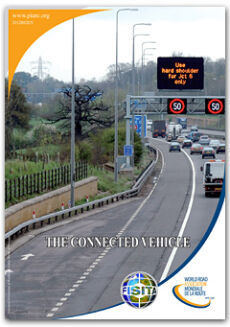
The advent of Intelligent Transport Systems has provided new opportunities for improving the safety and efficiency of the road network. The development of intelligent vehicles, connected by wireless networks to the roadside infrastructure, brings opportunities and issues which are being discussed in this report produced by a joint task force of the World Road Association (PIARC) and the International Federation of Automotive Engineering Societies (FISITA). The connected vehicle is no longer a [...]
-
Road safety audit guidelines for safety checks of new road projects
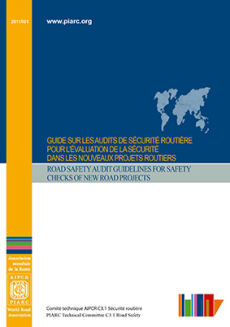
This guideline is a comprehensive catalogue of design safety problems and countermeasures that outlines the common types of design failures in a definitive guide for road engineers and professionals working in the road transport sector. With the UN Decade of Action soon to be launched by the World Health Organisation and a commitment to reduce road deaths through careful planning and innovative solutions the guidelines provide an excellent resource for road agencies and the private sector. The guidelines [...]
-
Congestion in urban areas - Examples of counter-measures
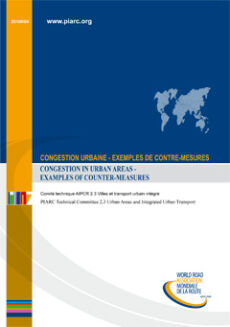
Congestion is a complex phenomenon, influenced by socioeconomic, technical, and human factors. The report examines twenty case studies and focuses on countermeasures against recurrent congestion on urban roads implemented in various cities. The countermeasures have been characterised by the nature/degree of congestion, the socioeconomic situation of individual regions and cities and the level of development within individual countries, etc. The study examines traffic and transport policies including [...]
-
Urban road tunnels - Recommendations to managers and operating bodies for design, management, operation and maintenance
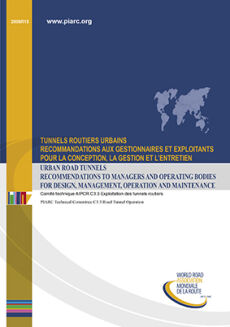
Urban road tunnels are unique in terms of traffic characteristics (high volume, congestion during commuter periods, wide variety of vehicles, high percentage of buses, etc.), infrastructural design, difficulty of closing and urban environment. Recommendations are presented to managers and operating bodies not only for the operation of existing tunnels but also for the design, management, operation and maintenance of urban road tunnels. The recommendations for existing tunnels are aimed at traffic [...]
-
Human powered transport
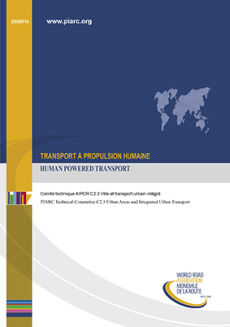
This report, prepared by PIARC Technical Committee 2.3 « Urban Areas and Integrated Urban Transport » deals with the topic of human powered transport, which is often ignored or lacks appropriate recognition as a viable mode of transport. However, it is a very important mode of transport from the point of view of its significance and sustainability. The report focuses mainly on walking and cycling. A statistical analysis on these unmotorized modes of transport is presented, based on the results [...]